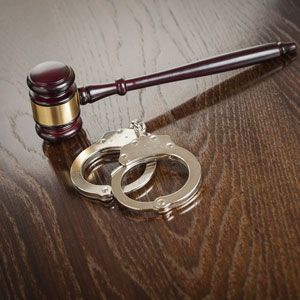
Crimes in California are divided into three categories: Infractions, Misdemeanors, and Felonies. Infractions are things like speeding, jaywalking, or texting-while driving, and do not warrant custody over time. If convicted, the defendant usually pays a fine. Misdemeanors are defined as crimes that are punishable by incarceration in the county jail for up to 365 days. If convicted of a misdemeanor, the Defendant may face also face fines, probation, and other obligations to the court. Felonies are crimes that are punishable by up to three years in county jail, or by a state prison sentence up to life (with or without possibility of parole), or by the death penalty.
Felonies are the most serious crimes in our system. Some felonies can also be further classified as "serious felonies", "violent felonies", which carry "strikes" if a defendant is found guilty. A third "strike" subjects the defendant to mandatory 25 years to life in prison, without regard what the underlying felony 1st strike, 2nd strike, or 3rd strike offenses were.
In a felony case, a defendant's first appearance in court is an Arraignment. At the arraignment, the judge may also address the issue of reasonable bail, or set the defendant for a bail review hearing at a future time.
In setting bail, the judge will consider factors such as: the Defendant's criminal history, the seriousness of the offense, the facts of the case, the Defendant's community ties, the likelihood that the Defendant will return to court, and of course the interest of public safety. Depending on these factors, the judge may raise or lower your bail. In some circumstances, the Defendant be released on his or her Own Recognizance (or "OR"), meaning that the defendant does not have to post money in order to be released pending trial. Conversely, there are circumstances where the defendant does not qualify for bail.

The next significant milestone in a felony case is the Preliminary Hearing, sometimes referred to as the "Prelim". At the Preliminary Hearing, a judge will hear a basic outline of the prosecutor's case and answer two questions: 1) Is there probable cause to believe that a crime was committed? and (2) Is there probable cause to believe the Defendant committed that crime? If the judge answers both questions affirmatively, the Defendant will be "held to answer" for the charge(s).
After the Prelim, there will be a series of "Pretrail" dates before the Trail date. A Pretrial date can be set for a variety of reasons: Sometimes the attorneys will be bringing and arguing various motions to the Court, sometimes the attorneys may be exchanging discovery, and sometimes they may be plea bargaining.
Many cases cannot resolve without a Trial. A Trial is where twelve members of the community--the Jury-- decides if the Defendant is Guilty or Not Guilty. Some Defendants waive their right to a Jury. Those cases are called "Court Trials"-- where a Judge decides if the Defendant is Guilty beyond a reasonable doubt.
If the Defendant is found Guilty, he or she will then proceed to Sentencing-- where the Judge decides the proper sentence for the crime that was committed.
If you or a loved one is facing a felony matter, do not wait. Call the professionals at Manavi Law Group, APLC at (310) 879-5616 to evaluate your case and your options or contact us online.
Call Me For Your Free, 20 Min Phone Consultation (310) 879-5616